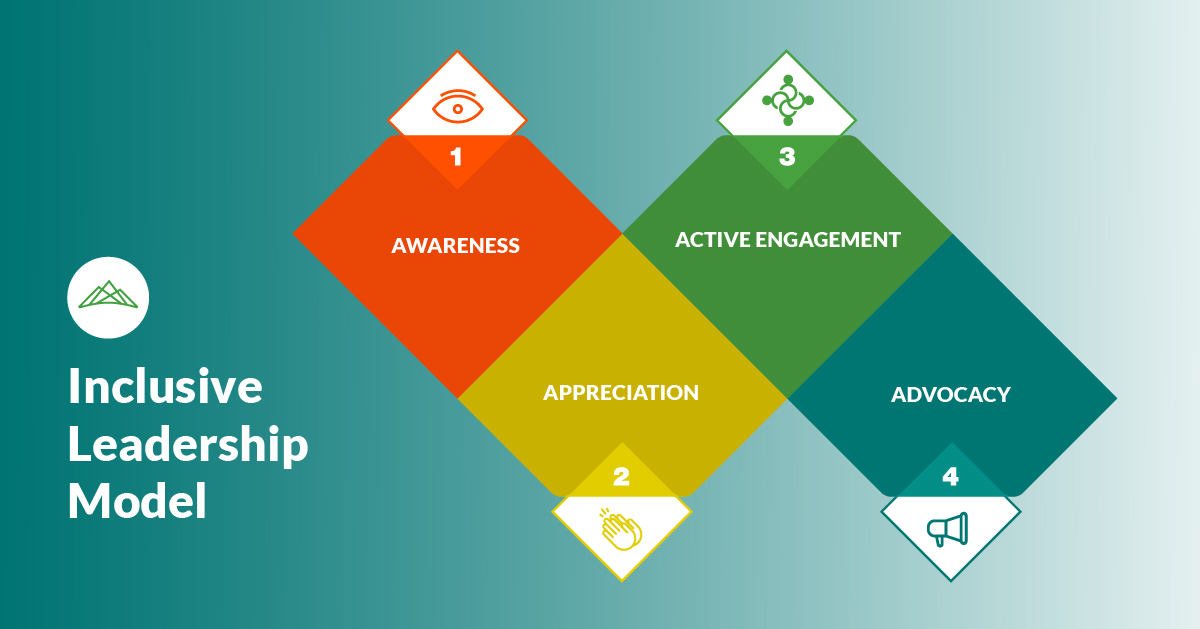Inclusive Leader Report
Developing an inclusive culture begins with leaders showing a commitment to promoting DEI through their actions. “Inclusivity” is not a static, permanent state of being. Instead, we define inclusive leaders – or inclusive leaders in development – as works in progress. The journey to becoming a more inclusive leader is a thoughtful and often uncomfortable path of self-awareness and learning through experiences and can be moderated by context-specific constraints.

The 4 Stages of Inclusive Leadership
• Awareness: During this first stage, leaders are aware of diversity, equity, and inclusion and the opportunities that arise with including diverse thinking and perspectives. They recognize the privileges and barriers associated with specific groups and displays keen insight into their unique circumstances and background.
• Appreciation: In this next stage, a leader begins to show admiration and respect for diverse perspectives. They begin to truly value diversity and consider inclusive practices as a critical component to effective collaboration and innovative thinking. This leader remains open and humble and strives to learn more about different people, cultures, perspectives, and opinions.
• Active Engagement: In this third stage, a leader evolves to actively including people from underrepresented groups to be a part of activities and initiatives. They intentionally foster a psychologically safe environment where others feel valued and represented.
• Advocacy: In this final stage, the leader is comfortable acknowledging and calling out all forms of discrimination; will actively challenge their own and other’s assumptions and outdated practices that perpetuate inequities. They also remain resilient during tough conversations and act in an authentic manner that is aligned to values of equity and inclusion.
Click Here to Download the Full Report.